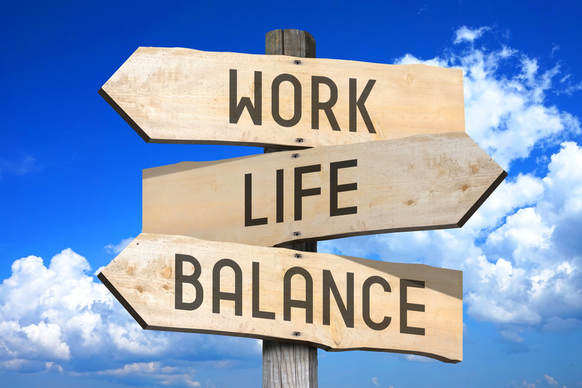Happy World Mental Health Day! Each year, on 10th October, the World Health Organisation holds World Mental Health Day with the aim of raising awareness of mental health issues. This year’s theme is Mental Health in the Workplace.
A starting point for improving mental wellbeing at work is to think about your work-life balance. If it feels like work is taking over your life and impacting on your overall happiness, here are some top tips for improving your work-life balance.
Set a work-life balance goal
Think about your current work-life balance and what you’d like it to be. Do they match? If not, it’s time to make some changes. Remember, everybody has their own idea of what the perfect balance is, so there’s no set percentage to aim for. Your goal might also need to be flexible through the year depending on what’s going on in your work/personal life.
Don’t confuse work and home spaces
If you work from home try to find a separate space that’s just for work. It’s easier to mentally step away from work if you can shut the door on it and walk away. Working from home in bed might seem like a great alternative to the office, but if you start associating your relaxation space with work it can be harder to switch off.
Leave work at work
Replying to messages before bed? Finishing off a project on your laptop at 11pm? Have a clear cut off time for stopping work. And when you get to it, shut down your computer, turn off your work phone and focus on you. And on that point…
Stop checking emails
Smartphones have made work accessible to us 24/7. But do you really need to read your boss’s latest thoughts on a project over the weekend? Probably not. The simplest solution is to delete your work email account off your phone, either permanently or outside of work hours. If your job means you have to regularly access your emails, try setting designated times for checking and turn down the volume on your notifications instead.
Work smarter, not longer
Could you reduce the number of hours you work by being more productive while you’re actually at work? As a starting point, try turning off email notifications on your computer so you’re not tempted to interrupt what you’re doing to check your inbox. Doing this breaks concentration and increases the chances of being distracted into another task.
Start a to-do list
At the end of each day write down your main priorities for the next day. It can be helpful to have a master to-do list and take selected tasks off it each day. Think about what’s realistically achievable in the time you’ve got. And if your workload is unpredictable, make allowances for the possibility of being given more urgent, unforeseen tasks to complete when planning out your time.
Think good enough rather than perfect
Are you putting extra pressure on yourself when you don’t need to? The quest for perfectionism can fuel stress levels and increase the feeling of being overworked. Go easier on yourself. Don’t think about whether a piece of work is perfect, but whether it’s good enough. Good enough is OK.
Take breaks
Plan regular time through your day to have a break. If you feel like you don’t have time for a break, remember you’ll almost certainly be more productive after 10 minutes of fresh air. As well as daily breaks and lunchtimes, plan time off work in regular intervals throughout the year. You don’t need to be jetting off somewhere exotic each time (although obviously that would be lovely), just taking time out of work can be restful.
Say no and ask for help
Do you find yourself saying yes to everything people ask you to do and taking on more work than you can cope with? If this sounds familiar, it’s time to start saying no and asking for help. Think about whether or not you can do what’s being asked of you before saying yes. If you can’t do it, be clear about saying no. And if the demands being placed on you are too high, look at your workload to see whether you can delegate. Or speak to your manager about getting additional support, extending deadlines or passing selected tasks over to someone else.
Take time for you
Exercise, leisure activities and friendships are all things that provide the balance with your working life. But when work gets busy they’re often the first things that get sacrificed. Taking time for self-care is hugely important for good mental health. It reduces stress levels, clears your mind and gives you chance to relax. Combine this with eating well and getting a good night’s sleep, and you’ll be well on the way to achieving a positive work-life balance.
Read more about How Self-Care Can Improve Your Mental Health.



 RSS Feed
RSS Feed